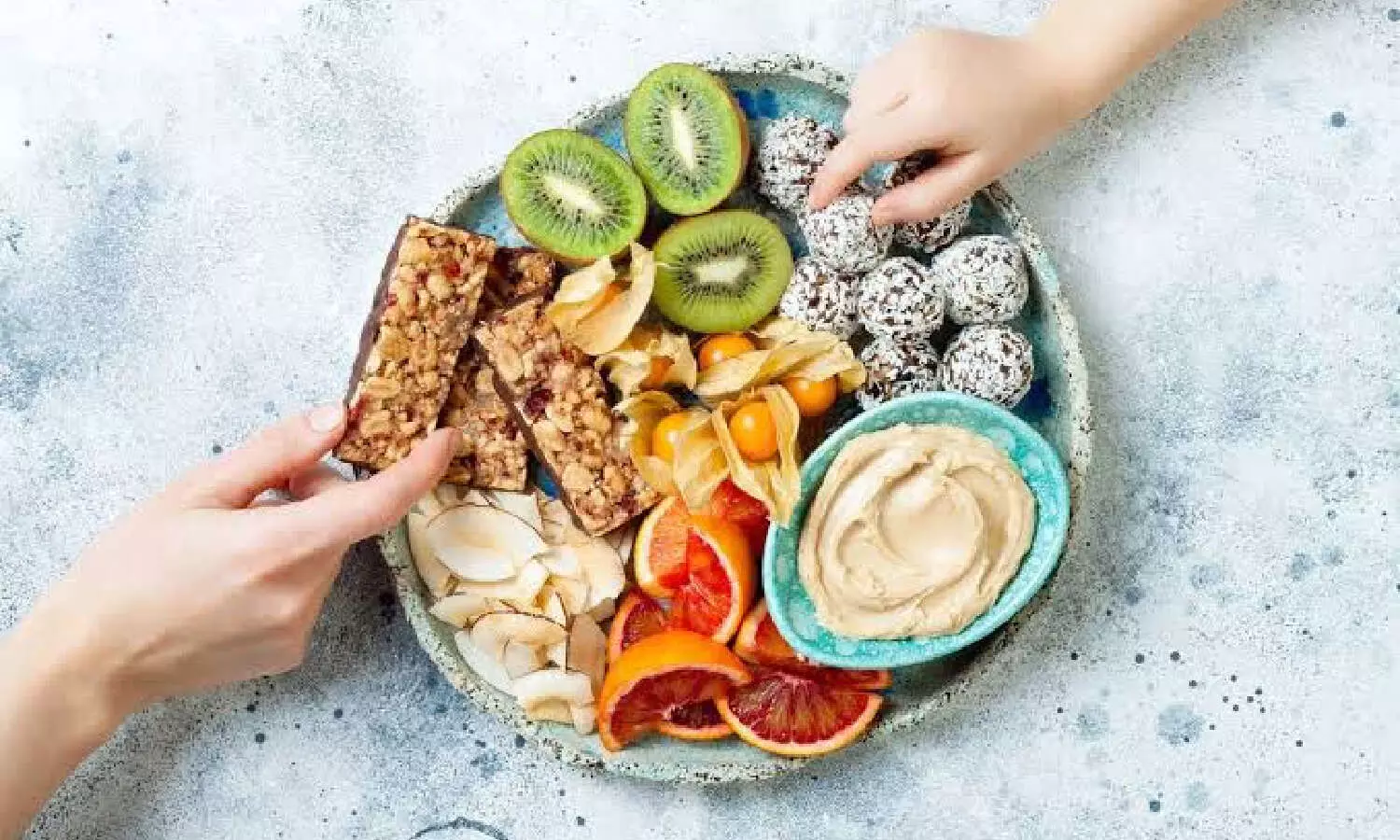Difference between healthy and convenient snacks lies in planning, say nutritionists
Snacking at irregular intervals or relying on refined foods can cause spikes and crashes in blood sugar levels.
By Anoushka Caroline Williams
Difference between healthy and convenient snacks lies in planning, say nutritionists
Hyderabad: Snacking is a common part of daily life, but the difference between a healthy snack and a convenient one often comes down to planning.
Nutritionists and health experts suggest that preparing snacks in advance not only supports better dietary choices but also helps regulate energy levels, mood and long-term health.
Preventing overeating and poor food choices
One of the main benefits of snack planning is reducing the chances of overeating. When hunger strikes unexpectedly, people are more likely to grab processed, high-sugar or fried foods.
Dr Maira Kapoor, Clinical Nutritionist, speaking to NewsMeter, explained, “When we don’t plan snacks, we end up eating whatever is available, which is often calorie-dense and nutrient-poor. Planned snacks keep you from reaching the point of extreme hunger, where portion control is difficult.”
By preparing snacks such as fruit, nuts, or cut vegetables in advance, individuals can avoid impulse-driven choices.
Supporting blood sugar balance
Snacking at irregular intervals or relying on refined foods can cause spikes and crashes in blood sugar levels. This not only affects energy but also mood and concentration.
Dr Arvind Kumar, Endocrinologist, notes, “Planned snacks with a balance of protein, healthy fats and complex carbohydrates help stabilise blood sugar. This is especially important for people with diabetes or those at risk of insulin resistance.”
Examples include pairing apple slices with peanut butter or roasted chana with a handful of seeds.
Enhancing nutrient intake
Snacks are an opportunity to add nutrients that may be missing from main meals. Planning them ensures a variety of vitamins, minerals, and fibre are included in the diet.
Dietitian Prisha Nair points out, “If your meals are not covering all food groups, snacks are a chance to fill those gaps. A cup of yoghurt with berries adds calcium, protein, and antioxidants, which many people fall short on.”
Pre-portioned containers of fruit, boiled eggs or hummus with vegetable sticks are simple ways to boost nutritional quality.
Supporting weight management
Mindful snack planning helps regulate calorie intake and prevents mindless eating. Research has shown that those who eat balanced, pre-planned snacks are less likely to consume excess calories later in the day.
“Many people think snacking is bad for weight management, but it’s actually the type and timing of snacks that matter. If you plan snacks with protein and fibre, they keep you full longer and prevent overeating at dinner,” said Nair.
Practical tips for planning snacks
Experts recommend a few strategies to make snack planning realistic and sustainable:
• Prepare in Batches – Cut fruits, wash vegetables, or roast nuts in advance.
• Use Portion Control – Store snacks in small containers to avoid overeating.
• Mix Food Groups – Pair protein with complex carbs (e.g., yoghurt + oats, nuts + fruit).
• Stay Hydrated – Sometimes thirst is mistaken for hunger. Keep water at hand.
• Keep Healthy Options Accessible – Place fruit bowls or nut jars where they’re visible.
Planning snacks is not about restriction but about making informed choices that align with health goals. With the right preparation, snacks can support energy, balance blood sugar, improve nutrient intake, and help maintain a healthy weight.
As Dr Kapoor sums up, “Snacking is not the problem. Unplanned snacking is. A little forethought can turn snacks into a powerful tool for better health.”